- Home
- Robin Hobb
The Soldier Son Trilogy Bundle Page 78
The Soldier Son Trilogy Bundle Read online
Page 78
I scarcely heard her words after she handed me my envelopes. The first one was in a dove-gray envelope, a very heavy paper, but the return address was what shocked me. Caulder Stiet was writing to me from Newton. So he had gone to live with his scholar uncle after all. His proud father had wanted nothing to do with his soldier son after the plague had wasted him away to a shadow and broken his spirit. The boy had been a nuisance and a pest to all the new noble first-years at the academy, and to me in particular. Still, I despised Colonel Stiet for what he had done. He’d literally given his son to his younger brother, to raise as a scholar instead of a soldier. Immoral. I shook my head and looked at my other two letters.
One was from Epiny and the other from Spink. It seemed odd that each would write to me. Usually Epiny penned me a lengthy epistle and Spink just added a postscript. I studied the envelopes. All three had been sent to my academy address, but forwarded to me at home. I scowled at that. What was Rory thinking to send my mail trailing after me? I’d be back soon.
Curiosity made me open the letter from Caulder first. His penmanship had not improved. His very short and polite note said that his uncle studied rocks and was very interested in the one I had given Caulder. Would I be so kind as to send them a detailed map that showed where I had found it? He would be ever indebted to me if I could, and remained, my friend, Caulder Stiet. I scowled over it and wondered what sort of mischief or game this was. Although we had parted on decent terms, I did not trust the little weasel and had little inclination to do him this favor. I would have set it aside, but it contained a second note from his uncle, carefully penned onto very expensive paper, noting that geology and the study of minerals was his area of scholarship, and my rock was quite an interesting mix. He would greatly appreciate my time and effort to comply with Caulder’s request. I set it aside with a growl of irritation. I owed Caulder nothing and his uncle even less. The only reason I did not discard it was that I knew Caulder’s father and my Aunt Daraleen were friends. Any rudeness I committed might find its way back to my Uncle Sefert’s doorstep. And I did owe debts of courtesy to him. I would reply to this. Later.
Next I opened the letter from Spink. The first few lines made my breath catch.
The Speck plague has come to Bitter Springs. Epiny has become very ill and I fear for her life.
The pages fluttered from my hand to the floor. Heart hammering, I snatched up the envelope from Epiny and opened it immediately. There was her familiar handwriting, perhaps a bit more scrawling than usual, and the first line read,
I do hope that Spink’s letter did not overly alarm you. The spring water treatment proved nothing less than amazing.
Heart still pounding, I gathered up the scattered pages of Spink’s letter and took all of my mail into the parlor. I opened the curtains to let in more light, and sat down on a cushioned chair. I spread out my mail on a low table and pieced together the puzzle. Spink’s letter had arrived at the Academy days before Epiny’s had, but they had been sent on together. Relieved of the worst of my fears, I sat down to read the missives in order.
Spink’s letter was wrenching, and not even Epiny’s letter that proved her survival could eliminate all his bad news. He had no idea how the plague had come to their little settlement at Bitter Springs. No one had reported seeing any Specks, or even any ill persons. He himself had continued to make a slow but steady recovery from the illness, despite occasional bouts of night fever and sweats. He had thought he had left the dread disease far behind in Old Thares. A small group of Plainsmen who lived near Bitter Springs had succumbed to it first. It had devastated their little settlement, swiftly reducing it from seventeen families to seven. Before anyone had realized they were dealing with Speck plague, it had spread. Two of Spink’s sisters had caught it. Epiny had insisted on nursing them, saying that as she survived the plague once, she was probably immune to it. She had been wrong. When Spink had mailed his letter to me, both his sisters and Epiny were severely ill and not expected to recover. His mother was struggling to care for them with Spink’s help, but he feared that she would exhaust herself and also fall to the sickness. He strove to nurse Epiny just as faithfully as she had cared for him in his time of sickness.
It is a terrible irony that the disease that helped bring us together may now part us forever. It was so hard to write to her father and warn him of her decline. I tell you truthfully, Nevare, that if she dies, the better part of me will die with her. I do not think I will have the courage to go on. In a last effort to save them, we will resort to practices that my mother deems “little better than superstition.” I will take her and my sisters to Bitter Springs and their supposedly healing waters. Pray for us.
So his letter ended.
I set his heartbroken letter aside and eagerly took up Epiny’s missive. It was written in her usual rambling style, very frustrating to someone who simply wanted to know how everyone fared there. Nevertheless, I forced myself to read it slowly and carefully.
My dear cousin Nevare,
I do hope that Spink’s letter did not overly alarm you. The spring water treatment proved nothing less than amazing. Having had the plague before, albeit in a much milder form, I was perhaps more aware than anyone else of how severely it had stricken me this time. My cousin, I did not expect to survive! I do not even remember the wagon journey to the springs, nor even the first time they immersed me. I am told that Spink carried me bodily into the water, and putting his hand over my nose and mouth, pinched them firmly shut, and then carried me under with him, where we remained for as long as he could hold his breath. When we emerged, he gave a similar treatment to each of his sisters. Others from the family settlement had journeyed with us and were similarly treated.
Then they set up a camp for us, unfolding cots under the wide blue sky and making of the meadow near the springs an open-air infirmary. On the first evening I awoke there, I already felt a lessening in my disease. Nonetheless, I was quite willful and difficult, and poor Spink was obliged to hold me down and force me to drink a large quantity of the spring water. Oh, it tasted foul and smelled worse! My fever was not entirely abated, and I called him names and scratched his poor dear face for his troubles with me. Then I fell again into a sleep, but it was a deeper, truer sleep, and when I awoke, feeling ever so much better, the first thing I demanded to know was who had scratched him so, that I could take revenge on her! I was so abashed to be told I had done it!
We remained encamped by the springs for almost a week, and every day we forced ourselves to drink that noxious water, and most of our food was cooked with it. When I realized how much I was recovering, and how swiftly, I demanded that Spink join me in this water cure. Nevare, you cannot imagine the change it has wrought in him! I will not say he is his old self, but he has begun to eat more heartily, to walk with more confidence, and most important to me, the light is back in his eyes and he laughs often. Already he speaks of returning to the academy and his studies and career. Oh, if only that dream can come true for him!
And now I must tell you—
“What is the meaning of this?” My father’s roar of fury and anguish tore my attention from Epiny’s letter. Loose pages in my hand, I looked up to find him glaring from the parlor door. He bore down on me like a cavalla charge. In one hand he held the large envelope from the academy. In the other were several sheets of paper. He shook them at me. His face was red, the veins standing out on his temples, and I would not have been surprised to see froth fly from his jaws, so wroth was he. “Explain this!” he roared again. “Account for this, you young scoundrel!”
“If you would let me see what it is, perhaps I could,” I said to him. I did not mean to sound impertinent, but of course I did.
In fury, my father lifted his hand as to cuff me. I forced myself to stand up tall, meet his eyes and await his blow. Instead, with a snarl of frustration, he thrust a letter at me. I managed to catch it before it fluttered to the floor between us. It was on academy letterhead, but it was not from Colonel Rebin.
Instead, I recognized Dr. Amicas’s handwriting. In a bold hand at the top, centred on the line, he had written Honorable Medical Discharge. I gaped at it.
“What did you do? All the years I educated you, with the finest teachers I could procure! All the years of trying to instill values and honor into you! Why, Nevare? Why? Where did I fail with you?”
It was difficult to read while he ranted at me. My eyes skittered over the page, and phrases leapt out at me: A post-recovery condition…unlikely to respond to any treatment…may worsen with time…impossible to carry out the normal duties of a cavalla officer…dismissed from King’s Cavalla Academy…unlikely to be able to serve in a satisfactory manner in any branch of the military at any level…
And at the bottom, the signature I knew so well, damning me to a useless life living on my brother’s charity beneath the weight of my father’s contempt. I slowly sank back into my seat, the page still clutched in my hands. There was a humming in my ears, and stupidly I thought of the Spindle and its endless dance. My mouth felt dry and I could not form any words. My father had no such problem. He continued castigating me for my irresponsible, self-indulgent, foolish, selfish, senseless ways. I finally found a breath and remembered how to move my mouth.
“I don’t know what this is about, Father. Truly, I don’t.”
“It’s about the end of your career, you fool. It’s about no future for you, and shame for your family. A medical discharge for being too fat! That’s what it’s about! Damn you, boy. Damn you. You couldn’t even fail with dignity. To lose your career because you couldn’t refrain from stuffing food in your mouth. What have you done to us? What will my old comrades think of me, sending them such a soldier son?”
His voice ran down. His hands, still clutching additional papers, were shaking. He felt this as his personal failure. His shame. His dignity. The honor of his family. Never had he considered how this might feel to me. My father had gone to stand by the window. He read through his handful of papers with his back to me, the writing tilted toward the light. I heard him give a small grunt, as if he’d been struck. A moment later, I heard the gasp of an indrawn breath. He turned to look at me, the papers still held out before him. “Filth,” he said with great feeling. “Of all the disgusting behaviors I might fear a son of mine might indulge in, this! This!”
“I don’t know what you are talking about,” I said again, stupidly. I wondered why the doctor hadn’t spoken to me before I left. I knew a wild moment of hope in which I wondered if it were all a mistake, if this discharge had been written when I was still terribly ill. A glance at the date on the paper ended that dream. The good doctor had signed it several days after I’d left the academy. “I don’t understand,” I said, more to myself than my father.
“Don’t you? It’s here in black and white. Read it for yourself.” He left the window and as he angrily strode from the room, he hurled the papers at me. It was not a satisfactory gesture. Not one even reached me. They fluttered out around him and settled on the floor. When he slammed the door behind him, that brief gust of wind stirred them again. I bent over to pick them up, grunting as I did so. My belly got in the way, and the waistband of my pants seemed too tight. I scowled as I painstakingly gathered up what proved to be my transcript and all my records, including my medical file.
I took them to the table and sorted them. Strange. All these papers were about me, and yet I’d never seen most of them before. Here was a secretary’s copy of the accusing letter that Colonel Stiet had sent to my father over the incident with Cadet Lieutenant Tiber. Here was, surprisingly, a letter of commendation from Captain Maw, saying that I had shown extraordinary ability as an independent thinker in his engineering and drafting class, and suggesting that I might best serve the King’s Cavalla as a scout on the frontier. Was that what had so upset my father? I sorted more paper. There were tallies of my test scores for my various classes. My grades were all exemplary. Surely they had been up to his expectations, not that I’d ever expected him to acknowledge it.
The medical file on me was thick. I had not realized that Dr. Amicas had kept such complete records. There was a log of my illness. It began with great detail, but by the fourth day, when cadets were dropping like flies with the plague, the entries were abbreviated to “Fever continues. Tried giving him mint in his water to cool his systems.” Toward the end of the file, I found notes on my recovery, and then more notes that tracked my increasing weight and girth. He’d graphed it. The continuing climb of the line was undeniable. Had that angered my father? He now knew that I had lied when I said the doctor had expected my weight gain to be temporary. Looking at the evidence, I felt a sudden sinking of heart. The line did not falter. It had risen every day since my fever had subsided. Was that what the doctor expected it to do? How long would it continue? How long could such a trend continue?
Toward the bottom of the stack, I found what had damned me in my father’s eyes. This document was not in the doctor’s handwriting. My name was marked on the top of the sheet, and a date. Below it was a set of questions, questions that rang oddly familiar in my mind. An aide’s notes below each one recorded my answer.
Did you go to Dark Evening in Old Thares?
Yes.
Did you eat or drink there?
Yes.
What did you eat? What did you drink?
Potatoes, chestnuts, meat skewer. Cadet denies drinking anything.
Did you encounter any Specks there?
Yes.
Cadet specifically mentions a female Speck. “Beautiful.”
Did you have any contact with any Speck that evening?
Cadet evasive.
Did your contact include sexual congress?
Cadet denied. Continued questioning. Cadet evasive. Cadet eventually admitted sexual contact.
I stared at the damning words. But I had not. I did not. I hadn’t had sexual contact with a Speck on Dark Evening, and I certainly hadn’t confessed that I had to the aide. I remembered him now, vaguely, as a dark shape silhouetted against a window that was too bright with light. I remembered him badgering me for an answer when my mouth was dry and sticky and my head pounded with pain.
“Yes or no, Cadet. Answer yes or no. Did you have sexual contact with a Speck?”
I had told him something to make him go away. I didn’t remember what. But I’d never had sexual contact with a Speck. At least, not in real life. Only in my fever dreams had I lain with Tree Woman. And that had been only a dream.
Hadn’t it?
I shook my head at myself. It was becoming more and more difficult for me to draw a firm line between my real life and the strange experiences that had befallen me ever since the Kidona Dewara had exposed me to Plains magic. In her medium’s trance, Epiny had confirmed that I had indeed been split into two persons, and one of me had sojourned in another world. I had been willing to accept that. I’d been able to accept it because I thought it was over. I’d recovered the lost part of my self and made it mine again. I had believed that my Speck self would merge with my real self, and the contradictions would cease troubling me.
Yet time after time, that strange other self intruded into my life, in ways that were becoming more and more destructive to me. I recognized him when I’d lain beside the farm girl, and he’d triumphed at Dancing Spindle. That Nevare, I felt, that “Soldier’s Boy” had been the one to spout anger so drastically at Carsina. I’d known him by the anger pulsing in my blood. He’d had the courage to free the dove from the sacrificial hook. I’d felt him again whenever I’d found words to confront my father in the days since the wedding. He wasn’t a wise influence on me. But he could rally my courage and foolhardiness and suddenly push me to assert myself. He relished confrontation in a way I did not. I shook my head. In that, he was a truer son to my father than this Nevare was. Yet I had to admit there had been times when I’d valued his insight. He had been with me the first time I glimpsed a true forest on my river journey to Old Thares, and it had been his anger I’d felt o
ver the slain birds at Rosse’s wedding. In quieter moments, his vision of the natural world replaced mine. I would see a tree sway or hear the call of a bird, and for the passing instant of his influence, those things would mesh with my being in a way my father’s son would not understand. I no longer denied the existence of my Speck self, but I did all I could to prevent him controlling my day-to-day existence.
But this change to my body was something I could not ignore nor exclude from my daily reality. As part of my “real” life, it made no sense. The rigors of my journey home and my fast should have made me lose weight. Instead, I’d grown fatter. Had I caught the plague because I’d dreamed of congress with a Speck woman? Was my fat a consequence of the plague? If so, then I could no longer deny that the magic permeated every part of my life now. For a dizzying instant, I perceived that the magic was completely in control of my life now.
I snatched my thoughts back from that precipice. It was too terrifying to consider. Why had this befallen me? As logically as a mathematical proof, I perceived the beginning of these changes in me, the place where my path had diverged from the future I had been promised and into this nightmarish present. I knew when my life had been snatched out of my control. An instant later, I knew whom to blame for it.
My father.
At that thought, I felt the milling guilt in me stop just as the Dancing Spindle had ground to a halt. That single thought, that pinning of blame, made all events since my experience with Dewara fall into a new order. “It wasn’t my fault,” I said quietly, and the words were like cool balm on a burning wound. I looked at the door to the parlor. It was closed, my father no longer there. Childishly, I still addressed him. “It was never my fault. You did it. You put me on this path, Father.”
My satisfaction in finding someone to blame was very short-lived. Blaming him solved nothing. Dejected, I leaned back in my chair. It didn’t matter who had put me in this situation. Here I was. I looked down at my ungainly body. I filled the chair. The waistband of my trousers dug into me. With a grunt and a sigh, I shoved at it, easing it down under my belly. I’d seen fat old soldiers hang their beer guts out over their trouser tops this way. Now I understood why. It was more comfortable.

 Ship of Destiny
Ship of Destiny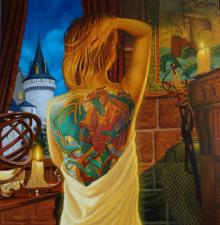 Golden Fool
Golden Fool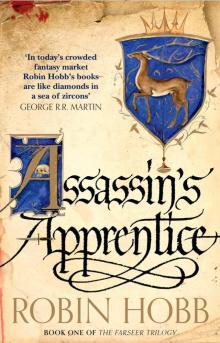 Assassins Apprentice
Assassins Apprentice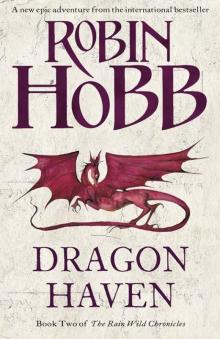 The Dragon Keeper
The Dragon Keeper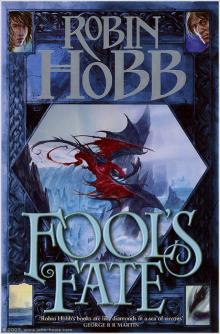 Fools Fate
Fools Fate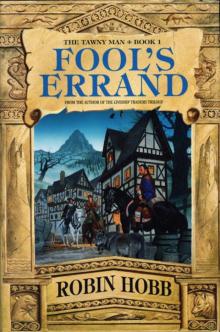 Fools Errand
Fools Errand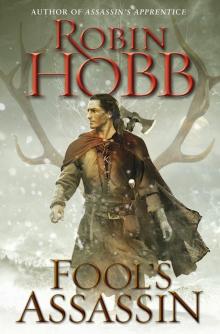 Fools Assassin
Fools Assassin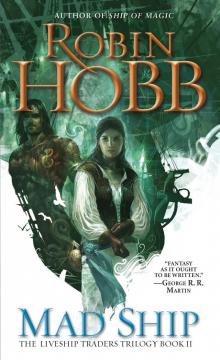 The Mad Ship
The Mad Ship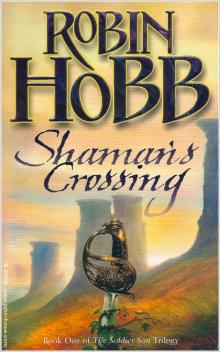 Shamans Crossing
Shamans Crossing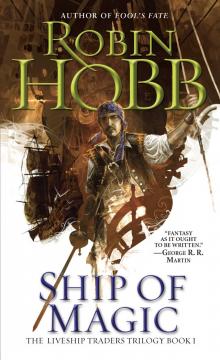 Ship of Magic
Ship of Magic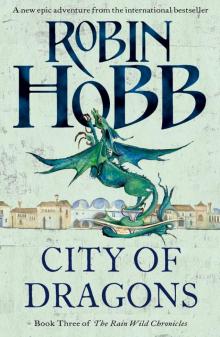 City of Dragons
City of Dragons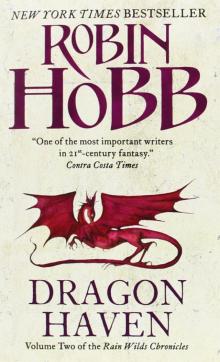 Dragon Haven
Dragon Haven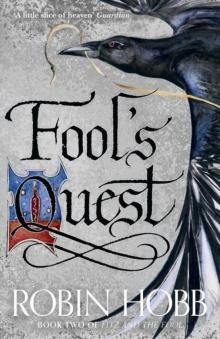 Fools Quest
Fools Quest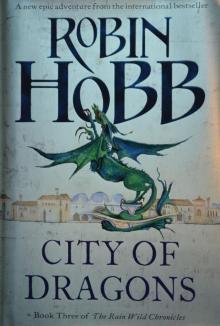 Blood of Dragons
Blood of Dragons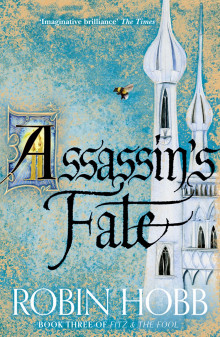 Assassin's Fate
Assassin's Fate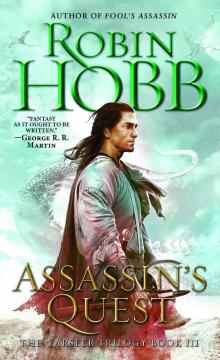 Assassins Quest
Assassins Quest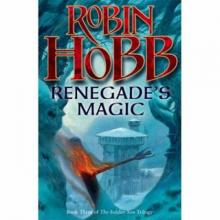 Renegades Magic
Renegades Magic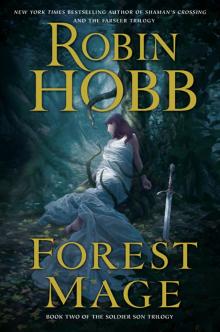 Forest Mage
Forest Mage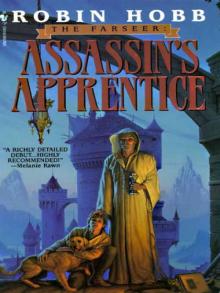 Assassin's Apprentice tft-1
Assassin's Apprentice tft-1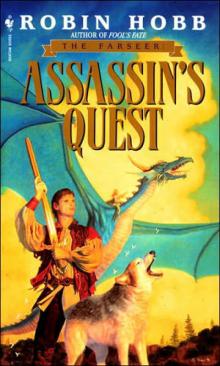 Assassin's Quest tft-3
Assassin's Quest tft-3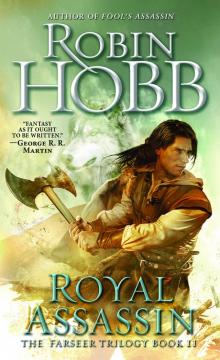 Royal Assassin
Royal Assassin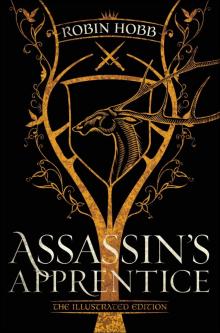 Assassin's Apprentice (The Illustrated Edition)
Assassin's Apprentice (The Illustrated Edition)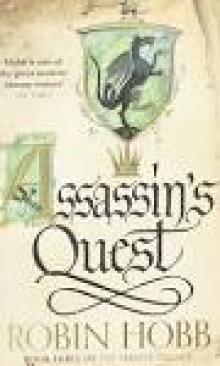 Assassin's Quest (UK)
Assassin's Quest (UK)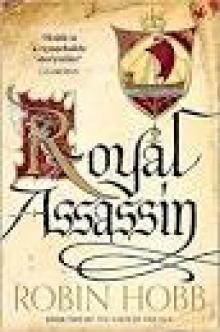 Royal Assassin (UK)
Royal Assassin (UK)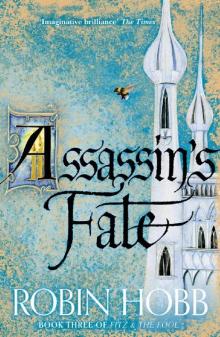 FF3 Assassin’s Fate
FF3 Assassin’s Fate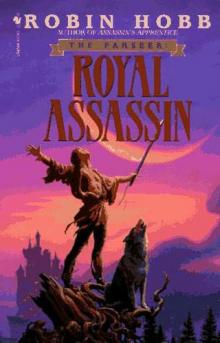 Royal Assassin tft-2
Royal Assassin tft-2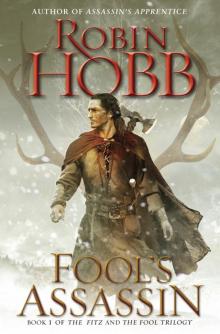 Fool’s Assassin: Book One of the Fitz and the Fool Trilogy
Fool’s Assassin: Book One of the Fitz and the Fool Trilogy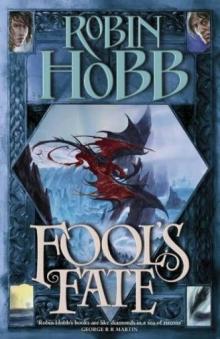 Fool's Fate ttm-3
Fool's Fate ttm-3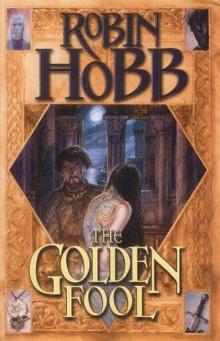 The Golden Fool ttm-2
The Golden Fool ttm-2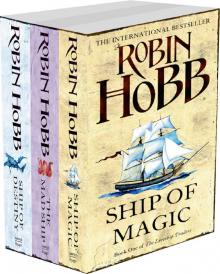 The Liveship Traders Series
The Liveship Traders Series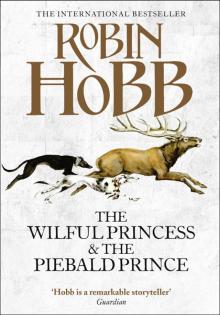 The Wilful Princess and the Piebald Prince
The Wilful Princess and the Piebald Prince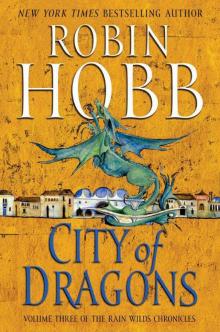 City of Dragons rwc-3
City of Dragons rwc-3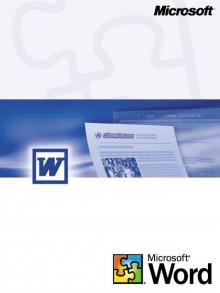 The Tawny Man 1 - Fool's Errand
The Tawny Man 1 - Fool's Errand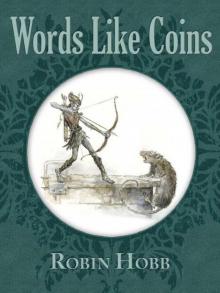 Words Like Coins
Words Like Coins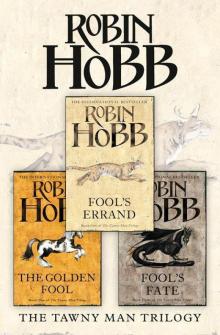 The Complete Tawny Man Trilogy Omnibus
The Complete Tawny Man Trilogy Omnibus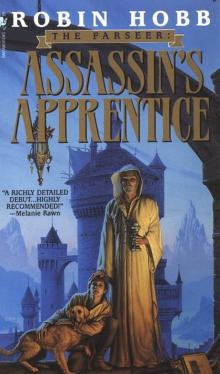 Farseer 1 - Assassin's Apprentice
Farseer 1 - Assassin's Apprentice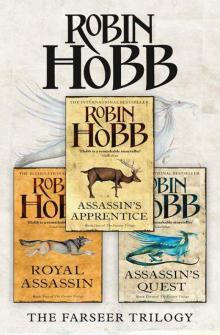 The Complete Farseer Trilogy Omnibus
The Complete Farseer Trilogy Omnibus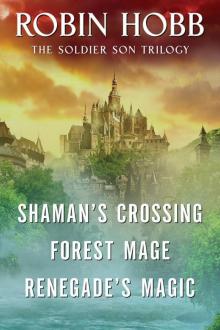 The Soldier Son Trilogy Bundle
The Soldier Son Trilogy Bundle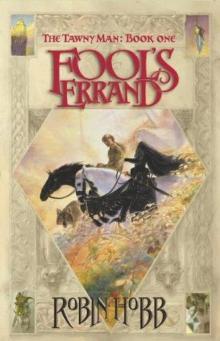 Fool's Errand ttm-1
Fool's Errand ttm-1 Blue Boots
Blue Boots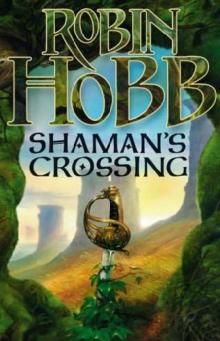 Shaman's Crossing ss-1
Shaman's Crossing ss-1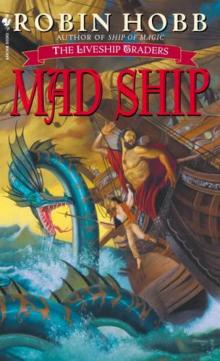 Mad Ship
Mad Ship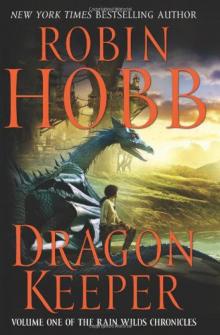 Dragon Keeper
Dragon Keeper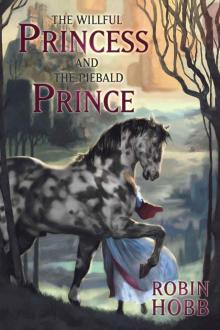 The Willful Princess and the Piebald Prince
The Willful Princess and the Piebald Prince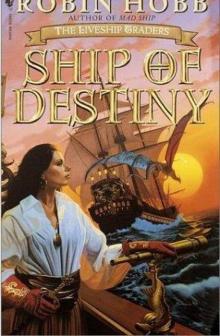 Ship of Destiny tlt-3
Ship of Destiny tlt-3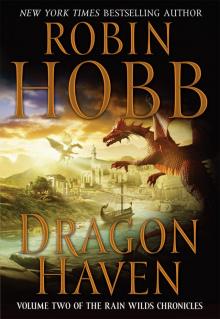 Rain Wild Chronicles 02 - Dragon Haven
Rain Wild Chronicles 02 - Dragon Haven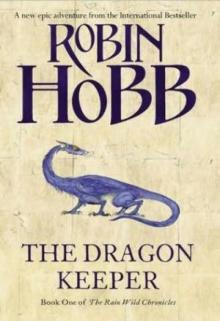 The Dragon Keeper trwc-1
The Dragon Keeper trwc-1 The Triumph
The Triumph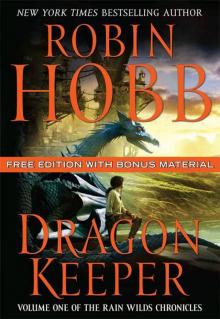 Dragon Keeper Free Edition with Bonus Material
Dragon Keeper Free Edition with Bonus Material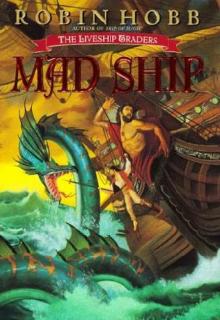 Mad Ship tlt-2
Mad Ship tlt-2 The Inheritance and Other Stories
The Inheritance and Other Stories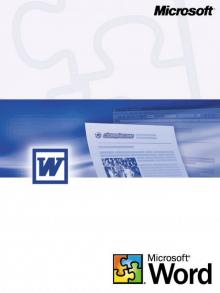 Tawny Man 02 - Golden Fool
Tawny Man 02 - Golden Fool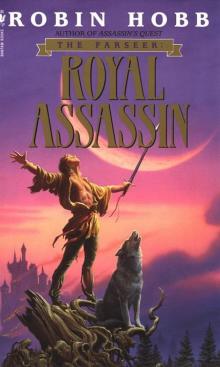 Farseer 2 - Royal Assassin
Farseer 2 - Royal Assassin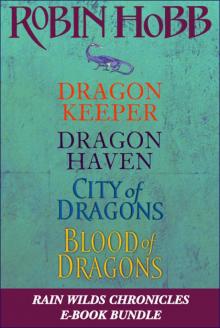 Rain Wilds Chronicles
Rain Wilds Chronicles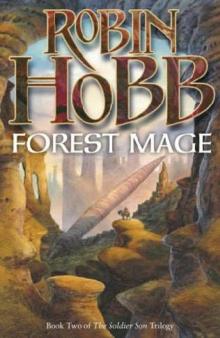 Forest Mage ss-2
Forest Mage ss-2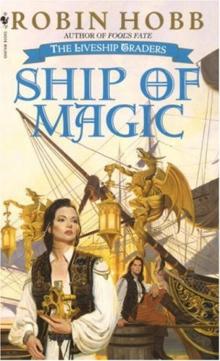 Ship of Magic lt-1
Ship of Magic lt-1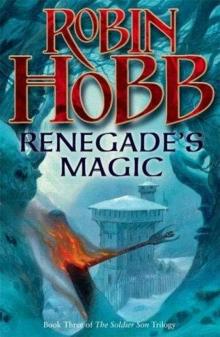 Renegade's Magic ss-3
Renegade's Magic ss-3